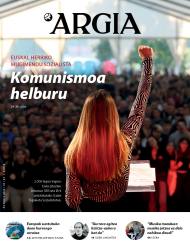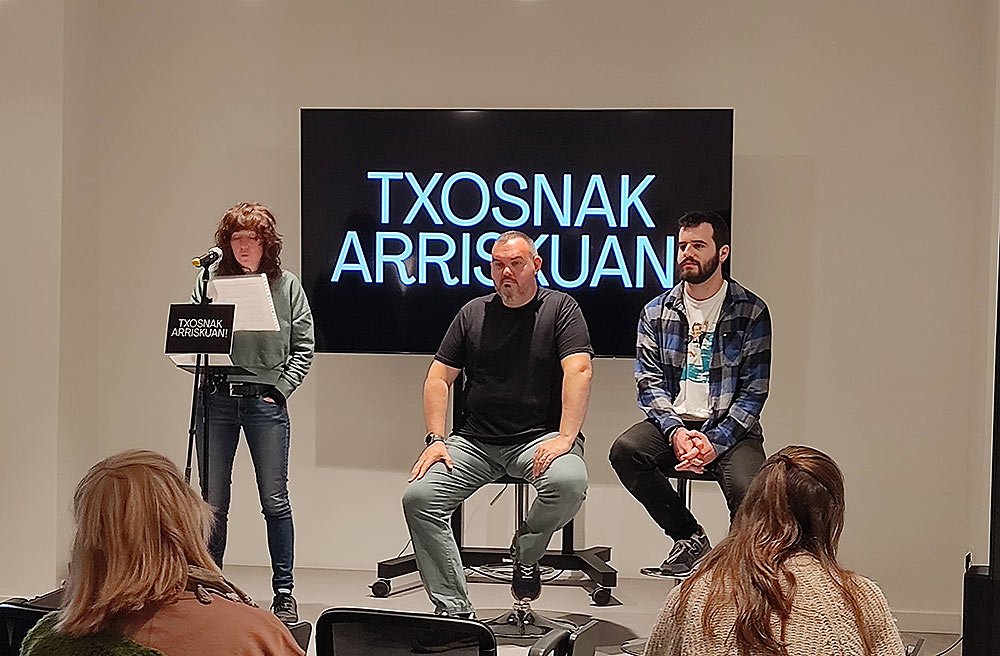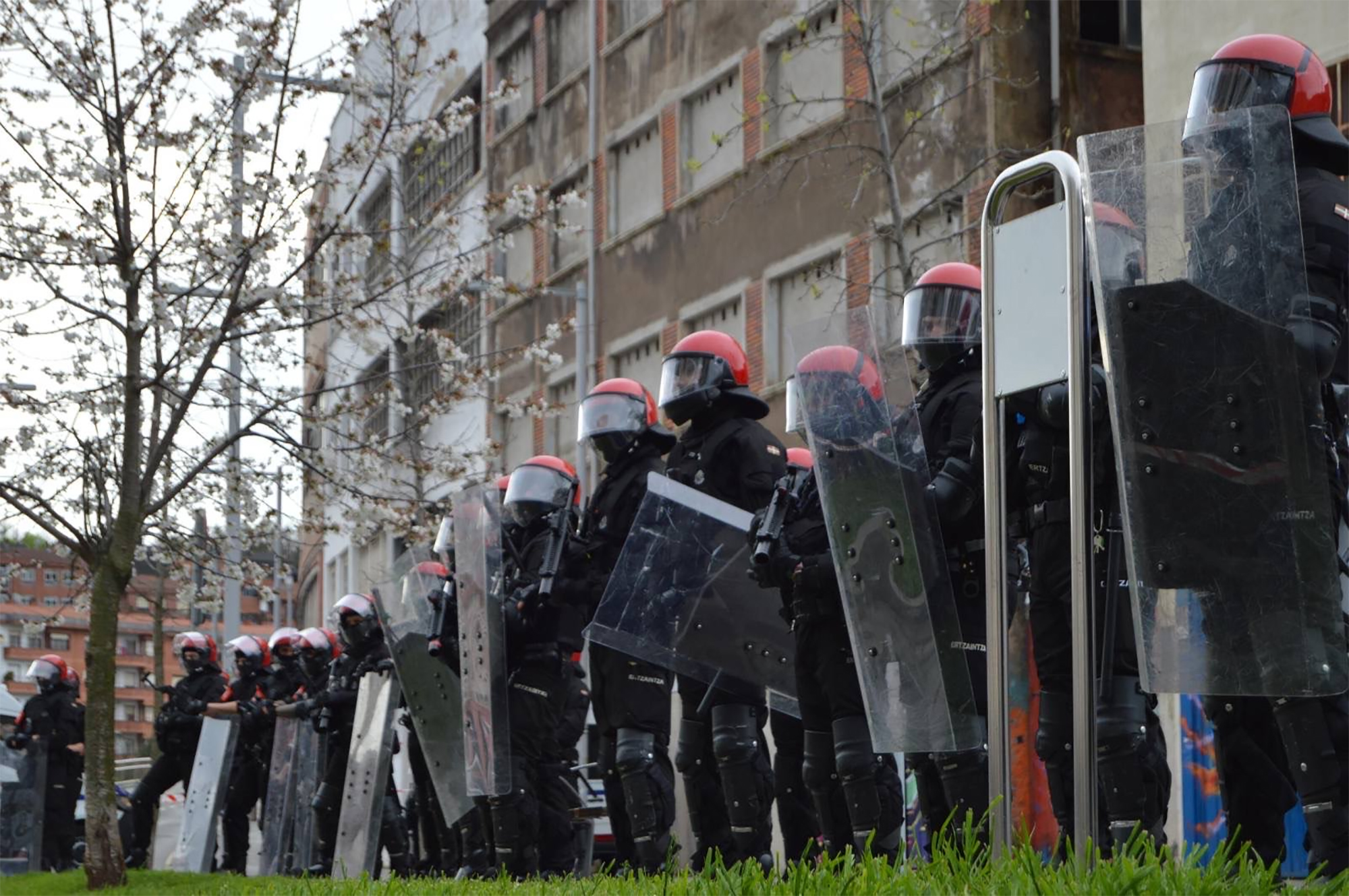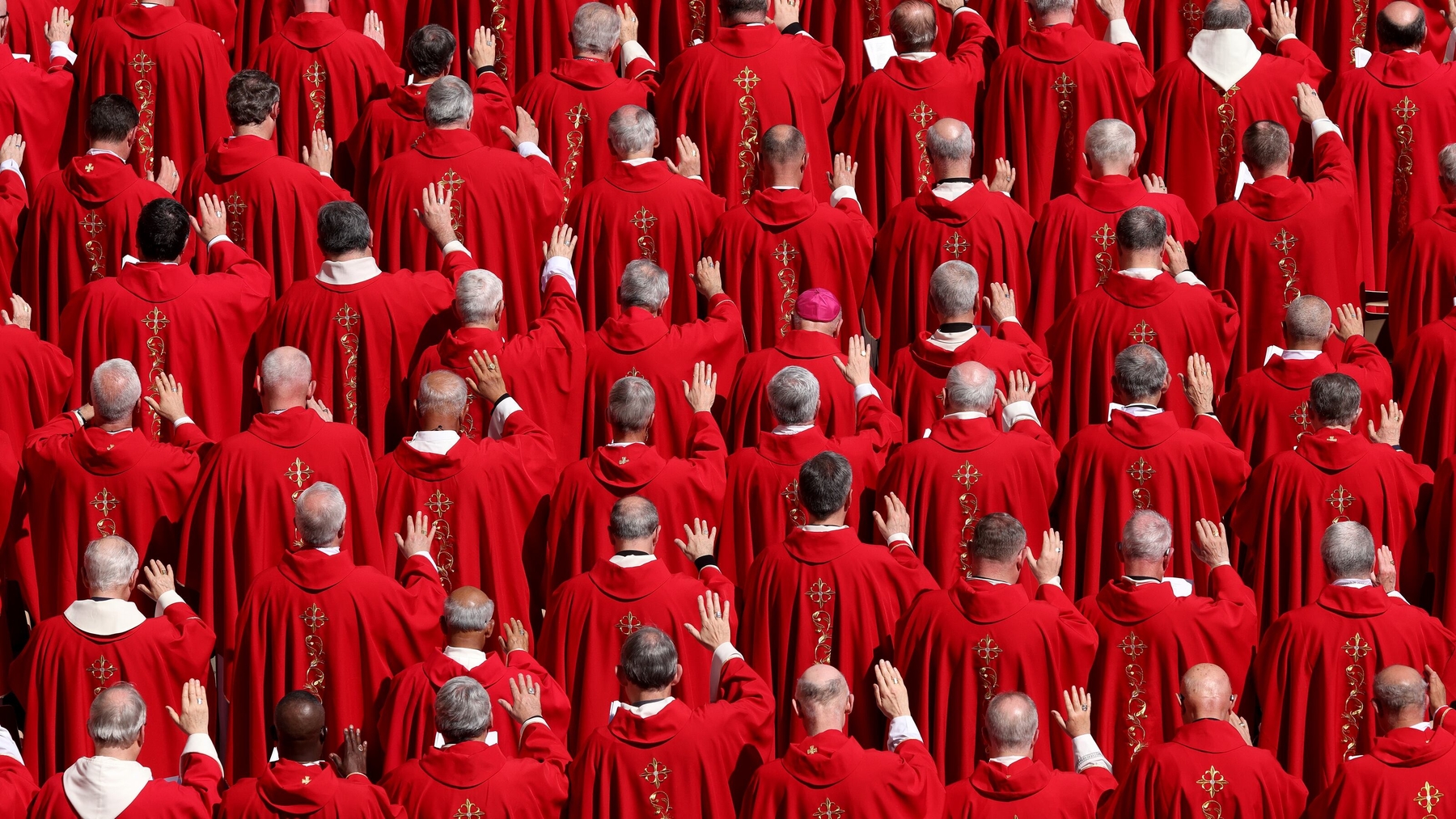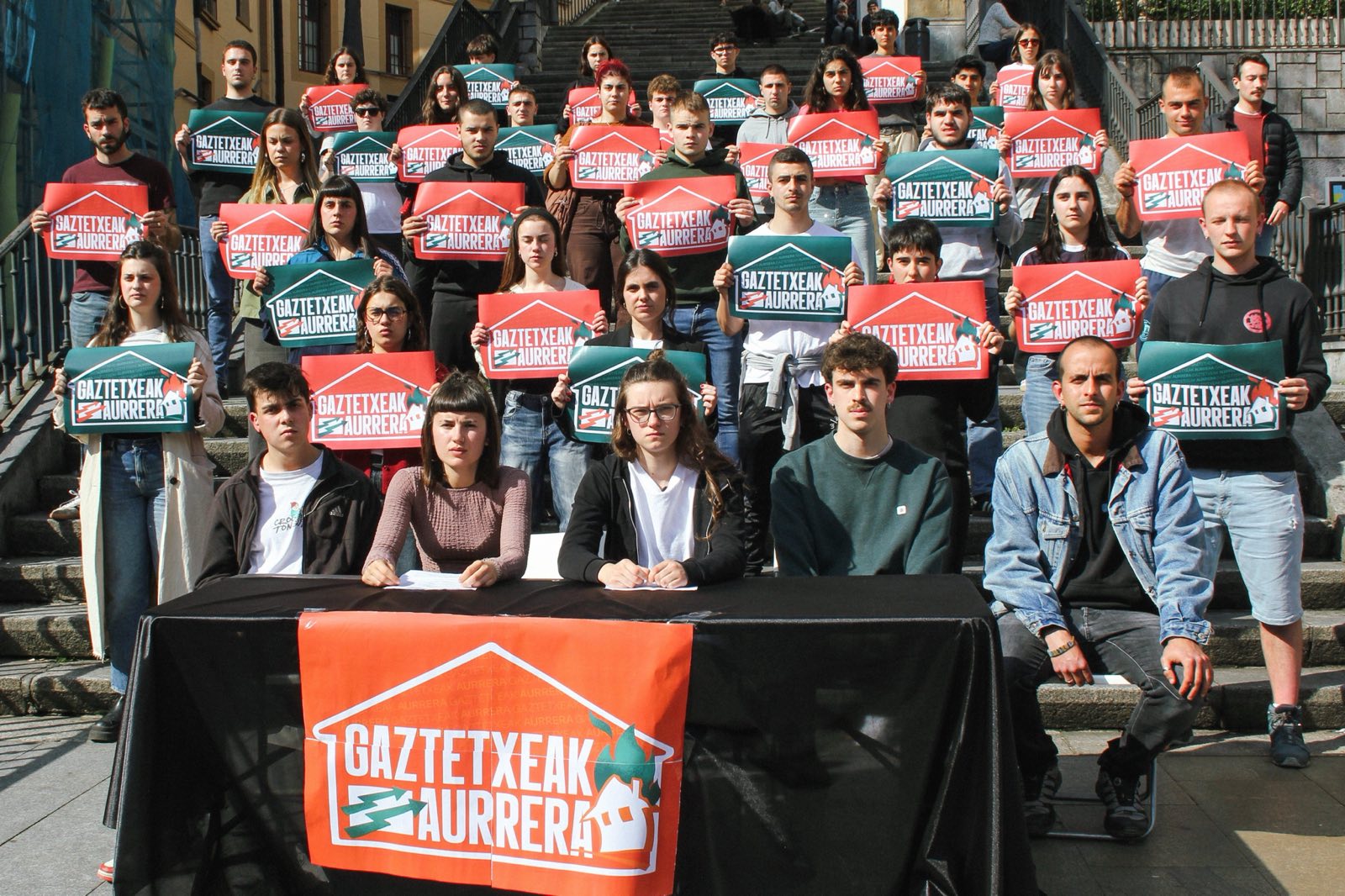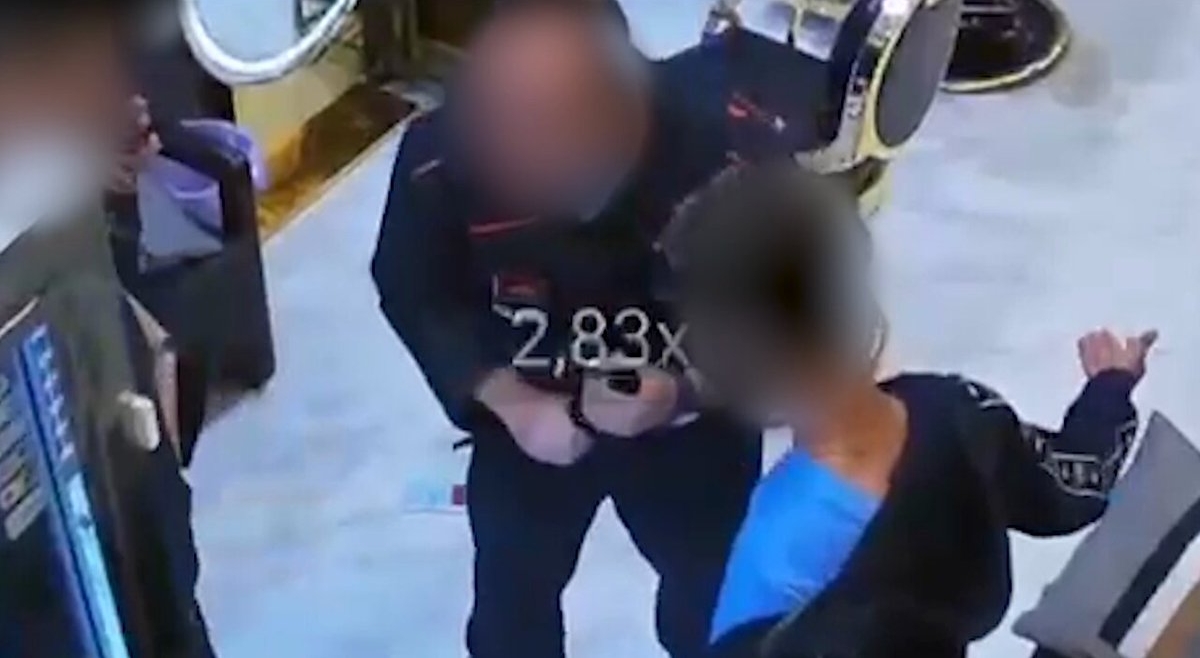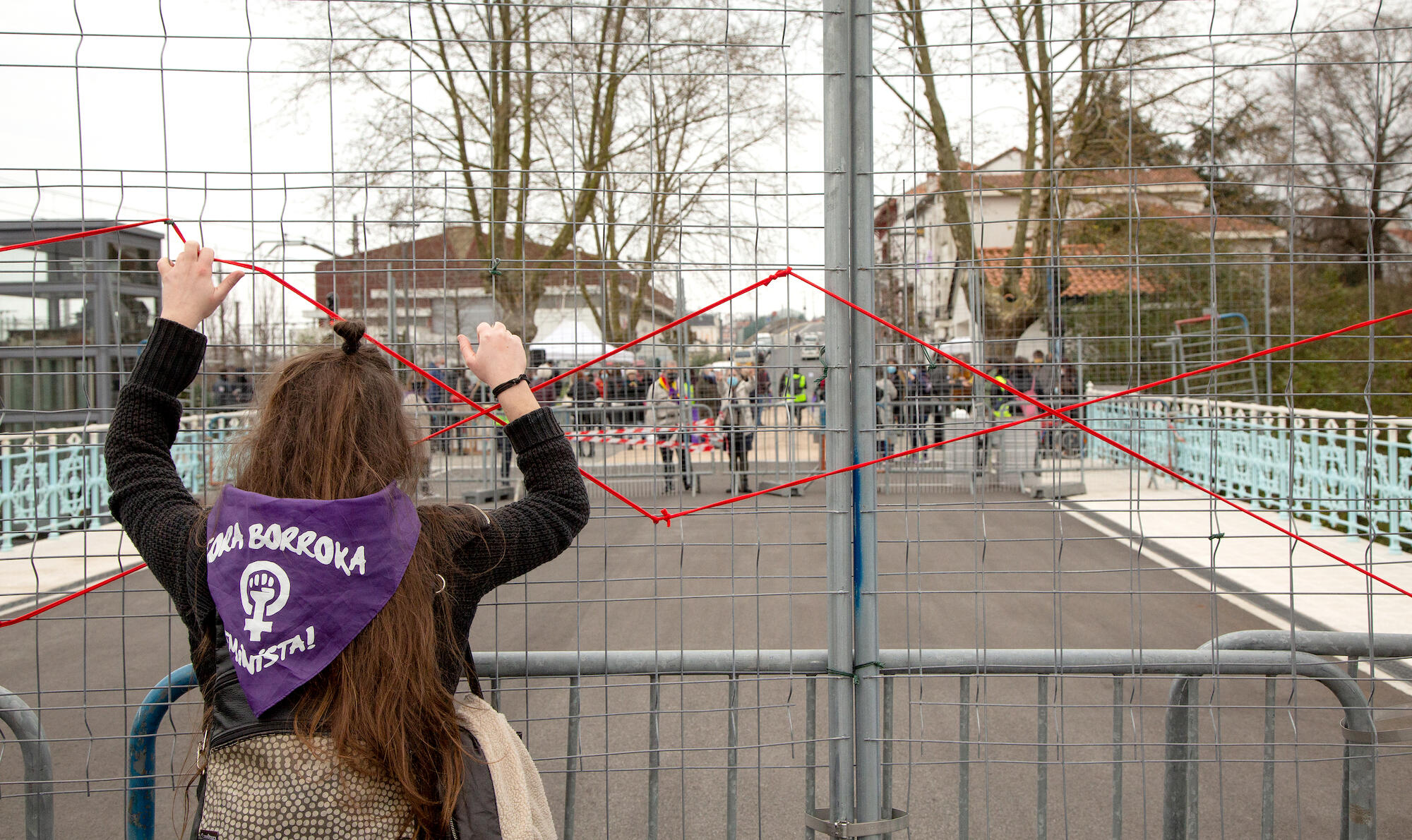“Everything changes: the way of living, the relationships… but there is a nucleus, a trace, that can be recovered”
- Otherwise it would be closed, but the floods of 10 December have accelerated the closure of the famous Bar Arga de la Rochapea. It has been twenty years there Nekane Zibiriain (Pamplona, 1952) and, when talking about it, insists on calling the accommodation "house". And his house has been literally: from six in the morning to eleven in the evening, from Monday to Sunday, he's been there, making a storehouse, meeting point for neighbors, and breathing in the Basque country. Now, retired, you want some buyer to appear to close the cycle.
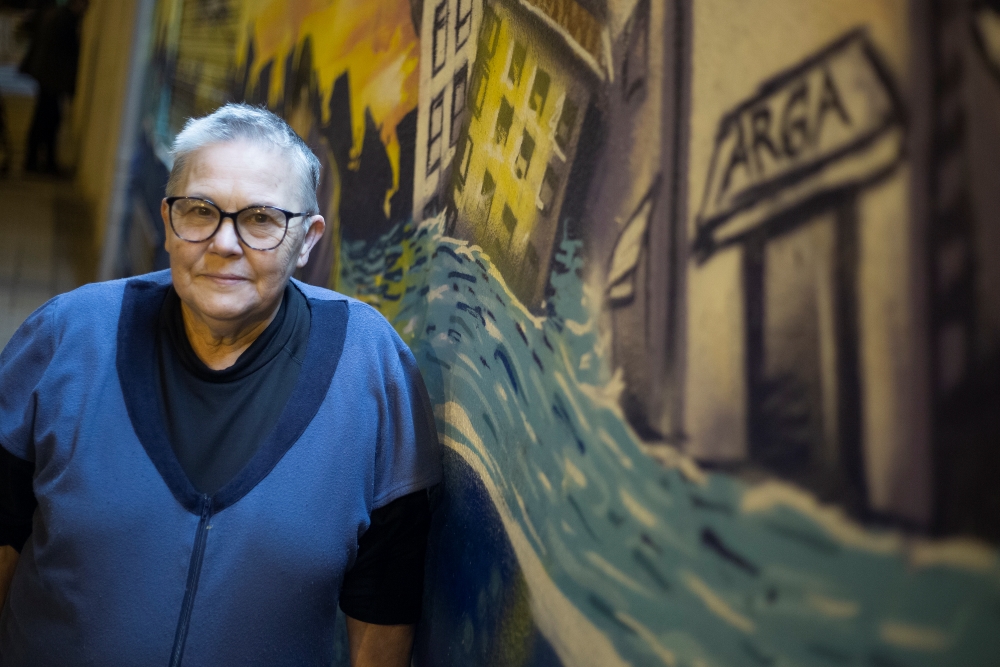
The floods came when I was going to start with the farewell program: Rio Arga against Arga accommodation.
Because we're in place. That day we started with farewell activities. I got up at six in the morning and prepared the bar with the pintxos. I was inside the bar. And then he started to introduce the water, and it came in, and it didn't stop. There was no light, but you saw the disaster. That is a pity. But soon people came to help. There were a lot of people working around the neighborhood. I can't explain the feeling.
Ready, the Arga is over for you.
Yes, maleruski yes, it's over. Now we have to make arrangements for everything to be ordained, for it to be taken in case of finding a Basque who is willing to recibirlo.Pero if I do not detect anyone in six months, then yes, I will have to end.
Why is it so hard to find anyone?
People fear. The coronavirus is there, but it can also be time to start something quiet. It's hard to work in such a place, but I haven't suffered anything. I think people don't look at it from my point of view, they see it as a workplace, and point. And it's a workplace, but it's also a place of calm. It is an accommodation in the neighborhood that has become the meeting point of the Basques. A place to feel at home.
How did it all start?
I was a single woman. I had two children, and I had no house, I had nothing. I worked: half a day in the community of Sangüesa, taking care of children and adults. And the other half beyond, in any job, cleaning, housing, anything. In 2001, I came up with the possibility of taking the Arga. Then there were still gardens in the area. I had to put it somewhere to get my job. I slowly started, the pension was old, dirty, ugly. I changed the bar and the kitchen. I've done the repairs. And it's been great for me because of the customers. I have no debts. What else can I ask for?
You haven't always lived here.
No. I also lived in Iparralde.
Did you learn Basque in Iparralde?
When I was very young, the people of Cáseda, the people of the parents, was going to work north of Navarre, to the wood. They were walking around here and, as my parents lived in Pamplona, they ate with us while waiting for the bus. I remember one of them always walked. “The wood wood wood they tell you, egun on…”. And I started pointing words in a little notebook. Then, in the Miracle, I went to public school, in Spanish, because there was no other alternative. Well, yes, but not for the workers. There was a girl of my age, tall, thin, always dressed in black. He told us that his mother couldn't do it in her tongue on the street, that they did it only at home.
Was there awareness? As age
advanced, I saw repression, but he put me in front of this story. Then, at the age of 18 or a half, we began to learn Basque with Patxi Zabaleta and Bixente Taberna. We went twice a week to a pension located between the streets Calderería and San Agustín. Every night I would ask for police documentation. You start to go to the mountain, to relate to me -- and I went to the North in 1975.

Exiled?
Yes.
Where did he militate?
Can I say?
If you want, yes.
ETA. Before they came to search me twice, I was also kidnapped, but in the third I left, fearing torture. Ours was a very soft militancy at that time. But things got ugly, they put in place an emergency situation, and we left. It was the beginning of 1975.
How did he experience that exile?
What is wrong in young time? I've lived very well. It was also hard, of course, but I don't have the feeling of having suffered. Only when we lost someone. We suffered at the time of the GAL.
You've got the Basque there.
He lived in a hamlet of Gamere-Zihiga, in Zuberoa. We worked as a farmhouse, taking the dome off the corn. Those from there were Sulatins, and the Basque from there was not what I had learned. I decided that two months I hadn't said any words [laughs].
Was your popular awareness strengthened during your stay in Iparralde?
Of course. Here too, but almost without noticing. I remember the police asked me when I stopped. “Where does this come from?” And I said, “When my father came to the dirty house of the work, I think that there was awareness.” That's how it felt.
He returned to Pamplona in 1988.
They brought me in. A first opportunity to return took place in 1977. But how? They were dead, repression… I didn’t come back. Later, in 1987, they began to evict people in buses. I already had two children, born in Iparralde. Emilio López Adam Beltza, a doctor, was a refugee there. He created my son.
All that environment you took to Argara.
Well, it's more Argan than I was, and I'm like that. It's been a place for the Basque people, a humble place, a house.
Are you losing these community environments?
Everything is lost: the way we consume, the way we live... We do not stay in the accommodation, the relationships have changed. But there's a spinal cord, a track that you can get back.
“My parents are from Cáseda, but I was born in Pamplona. I was very young at the age of 20. Now my father is 90, and here he has been helping, preparing crumbs, or peeling potatoes, until the last moment. Now it's up to us to take care of his father, who is very old. I also have grandchildren. And I also want to do a lot of things that I haven't done so far. I also want to take a house in Zuberoa, and invite friends from here to go there. I have a lot of plans, I hope I have time to make them all.”
The Department of Education reported on diagnostic evaluations in February: He talked about the mid-stage of 2023 and the end-stage of 2024. Since the disastrous results would show that we have a structural problem, the department decided to comply with the procedure (publish... [+]
The pandemic has revealed, in all its crudeness, the consequences of the neoliberal model of care for the elderly, children and the dependent population. Now is the time to consolidate the critical discourses and community alternatives that flourished during the lockdown.”... [+]









